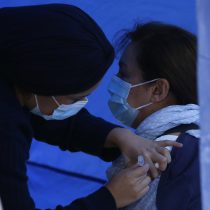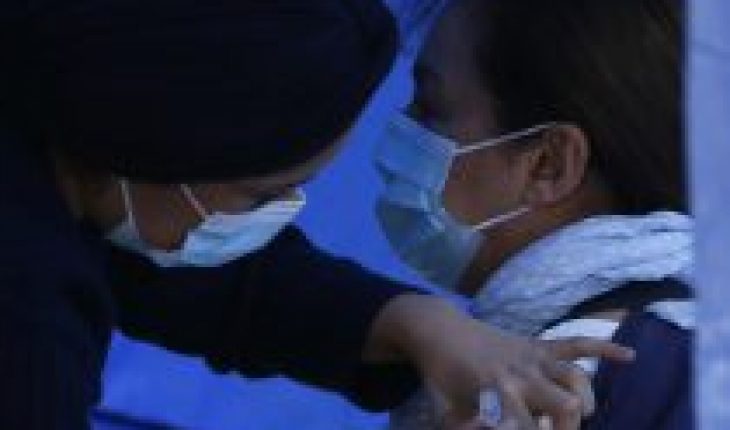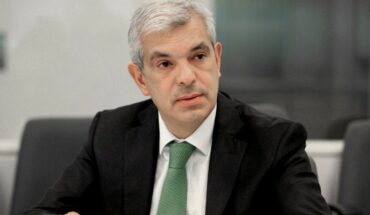
In Chile, according to Onusida data, there are about 74,000 people living with HIV, 67,200 of whom are aware of their diagnosis. This Monday, according to the vaccination schedule, it is the turn of all people who are HIV carriers for inoculation because they are considered a “risk group”.
Following a series of controversies and the demand for activists and disease-related groups, the Ministry of Health established a new protocol for the inoculation process. Among the most important points is the one that protects the confidentiality of the patient’s condition, which states that “it is not necessary that at the time of the vaccination, a document, examinations or certificate attesting to HIV status and immune status must not be requested or required. The ID card or identification document must be presented.”
Despite the above, groupings are concerned that this new document does not explain the non-demand for a spoken statement or the use of HIV care facilities as places of vaccination, as they did with dialy people, who began their vaccination this week.
Because of the above, Ms. Claudia Mix sent a trade to the Ministry of Health to rehabilitate sexual care facilities to vaccinate HIV-positive people.
Valeria Stuardo, a PHD at the University of Chile School of Public Health, said that “it is of great relevance to ensure the confidentiality of the vaccination process in this population. The vaccination considerations document issued by the Undersecretariat for Public Health under no circumstances ensures this strict confidentiality process.”
In addition, it called on the health authority to enable HIV care facilities so that people can come to them calmly and without feeling their basic rights under the law violated.
Vasily Deliyanis, executive director of the Diversify Foundation, emphasized that in the mismanagement of the Government on the subject. “There are three documents explaining how to get vaccinated, which is absurd. Civil society has put this issue on the run, it was possible that this accreditation should not be done, however, some way will have to be identified, that is verbally, which is infinitely more violent.”
One of the demands that it urgents today, ad portas to begin the process, is that the same criteria that the Government had for dialysized and transplanted people are used. Victor Hugo Robles noted that they valued that this group was inoculated in safe spaces, but that it was in their attention that this same strategy was not used for people living with HIV.
Carlos Faras, creator of the Chile PrEP platform, stated that “the document remains weak and continues to demonstrate an ambiguous policy on the part of the Ministry of Health in protecting people living with HIV. If a general protocol is not established for all chronically ill people, how will distinguish who is a person with HIV who should not apply for any documents and who is a person with other base diseases who can be asked for a document if deemed relevant.”
Luis Zambrano, a member of the Vida Más group of hospital Sotero del Río and the social platform in HIV/AIDS and Human Rights expressed that confidentiality remains in the hands of a third party and not one, so it will lead to people not being empty as chronically ill.
Nearly two days after starting the process of inoculation, there are still doubts and non-conformity on the part of HIV-positive people. Although they have made a number of progress, these have not been sufficient to achieve safe, comfortable and adequate vaccination for the approximately 74,000 people living with this disease in the country.





